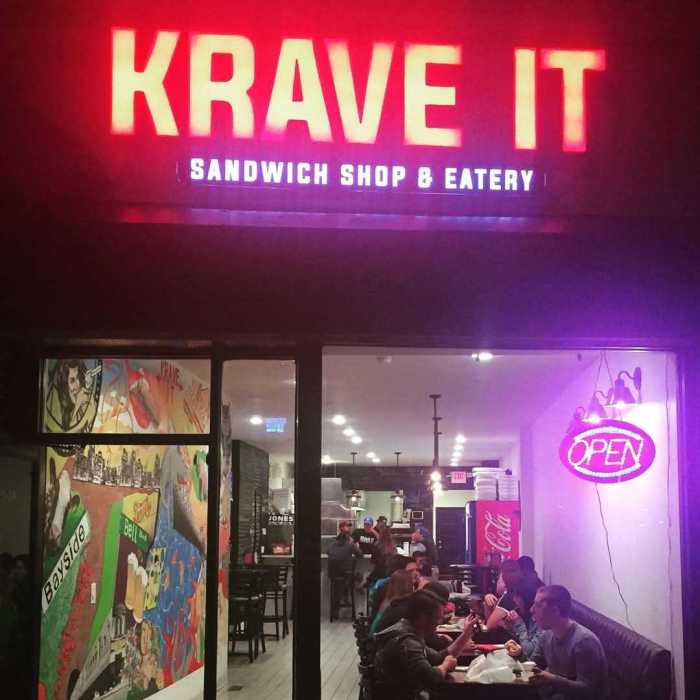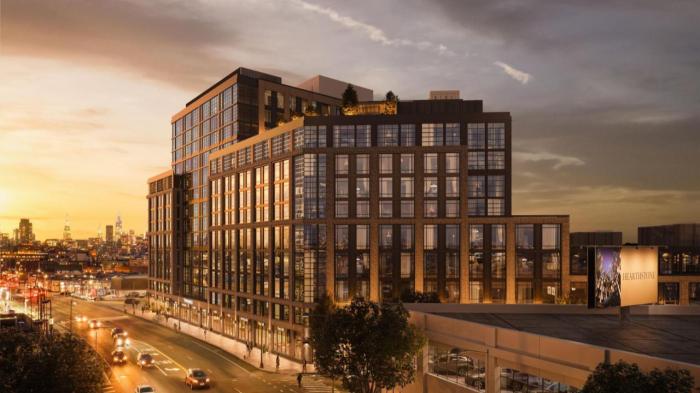The cry against overdevelopment was sounded again in Astoria this past Saturday, as residents of the historic Norwood Gardens neighborhood held their third rally against the construction of a four-story apartment building on their block.
About 40 residents, some carrying signs that read "Stop the Urban Nightmare," gathered outside the nearly-completed structure at 30-31 36th St. to protest the zoning rules that allowed it to be built on their quaint block of 1920s-era brick row houses.
"You need to be aware that these laws are in place and we need to change them," said Phil Rovere, president of the Norwood Neighborhood Association. "One of our major goals is to show what the community wants."
To prevent such construction in the future, residents signed petitions for rezoning the surrounding four blocks, drummed up funds for legal counsel, and heard encouraging words from local leaders and veterans of other zoning wars.
"This neighborhood should be preserved. I am with you all the way," said Assemblyman Michael Gianaris (D-Astoria), pledging his support in any rezoning efforts or legal action residents might take against the propertys developer, Dzeidet Kandic, who bought the land at auction earlier this year. Kandic did not return calls for comment.
"Its a quintessential Queens street. Thats whats so special about it," said Paul Graziano, land use and zoning chair of the Queens Civic Congress. Graziano, an urban planner, historic preservation consultant and onetime City Council candidate, has been advising residents of Norwood Gardens and nearly a dozen other neighborhoods in Queens on "contextual rezoning," a process that changes zoning laws to preserve an areas predominant character.
Graziano noted that zoning laws written more than 40 years ago were intended to accommodate a New York City population of 16 million peoplea figure double that of the citys present total. Norwood Gardens is zoned to allow buildings up to twelve stories high.
"Most lay people dont know anything about this stuff until something like this [building] goes up," he said.
In order to rezone the area, residents would have to present an application detailing the merits of their case to the Dept. of City Planning (DCP), which would then forward the information to Community Board 1 and the borough president for recommendations. The City Planning Commission (CPC) would then review the application, and if CPC approves it, the final decision rests with the City Council.
"I will do whatever this community wishes me to do, and will provide any assistance necessary," said Councilman Peter Vallone, Jr. (D-Astoria).
John Young, director of DCP in Queens, would not speculate on the likelihood of rezoning in Norwood Gardens but said, "Wed be happy to sit down and review their concerns, and work with them on a proposal if thats what theyd like."
Besides rezoning, homeowners in Norwood Gardens are looking into historical landmarking and even altering their deed restrictions to specify that future development cannot exceed what exists today. For such a deed restriction to affect the entire block, 75% of the owners would have to agree to it.
"The city isnt doing enough, so [deed restrictions] may be your only recourse," Graziano told the audience.
Tina and Hing Lai Chan, a Forest Hills couple, used an 80-year-old deed restriction blocking the construction of a seven-story building on their street to win a lengthy court battle two weeks ago. A judge ruled that the deed restriction took precedence over the zoning rules in the area, which are the same as Norwood Gardens.
"Your home is your castle," Mr. Chan told the crowd. "Never let anyone tell you that you cant do it."



































